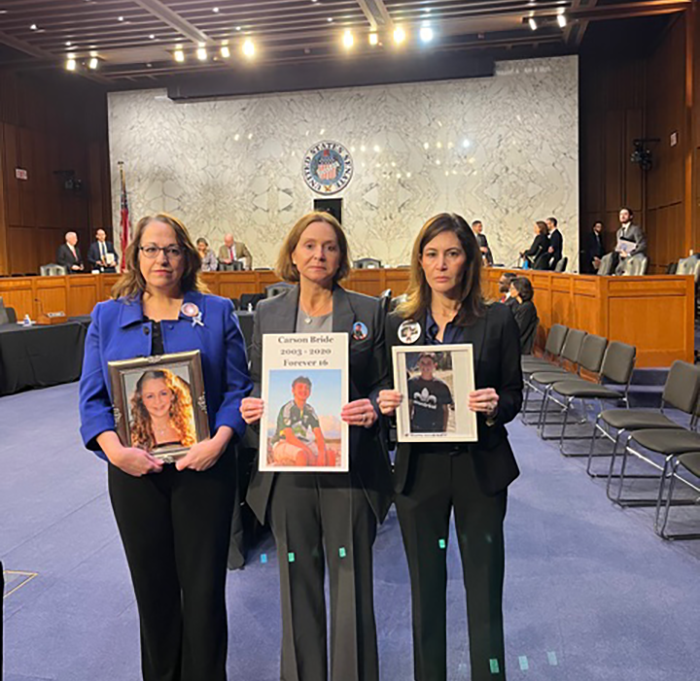Tech Lawmakers show rare bipartisan unity in pursuing protections for kids online
Lawmakers on the Senate Judiciary Committee found rare alignment at a recent hearing about how Congress can help protect kids from online harms.
The hearing on Tuesday, which included a parent who lost a child to suicide after cyberbullying, representatives from the National Center for Missing & Exploited Children and the American Psychological Association, points to the importance the new Congress is putting on protecting kids on the internet.
They’re speaking out in support of the Kids Online Safety Act, which would require sites likely to be accessed by kids 16 or younger to maintain certain privacy and safety protections by default. The bill passed unanimously out of the Senate Commerce Committee last year and was reportedly considered as part of the year-end legislation, though it ultimately didn’t make the cut.
“We must and we will double down on the Kids Online Safety Act,” Sen. Richard Blumenthal, D-Conn., who co-sponsored the bill with Sen. Marsha Blackburn, R-Tenn., said at the hearing.
Blackburn and Blumenthal both held up a newly released 2021 study on youth risks from the Centers for Disease Control and Prevention, which showed that mental health is worsening. The survey found 20% of girls and 11% of boys reported being bullied online over the past year.
President Joe Biden is putting his voice behind the movement for change. Following remarks he made at last week’s State of the Union address, Biden said at an event Tuesday that, “We have to pass legislation on the damaging technologies having an effect on our kids.”
Legislators in Utah also sought to bar social media accounts under age 16. However, a bill that recently passed the state’s House of Representatives removed that provision, instead allowing for consumers to sue social media companies that knowingly cause harm.
The issue of an age limit and its potential effectiveness was a big topic Tuesday.
Rose Bronstein, whose son Nate died by suicide last year at age 15 after being subject to cyberbullying, told CNBC in a phone interview after the hearing that raising the age limit would make it easier for parents to keep their kids off of social media. Their kids wouldn’t risk isolation because their peers also wouldn’t be allowed to join.
Christine McComas said age limits would have a limited impact.
“Kids are always three steps ahead of us with any kind of tech,” said McComas, whose daughter Grace died by suicide at age 15 in 2012 after experiencing cyberbullying. “We need to really keep talking about all of it and think about it as a societal shift.”

